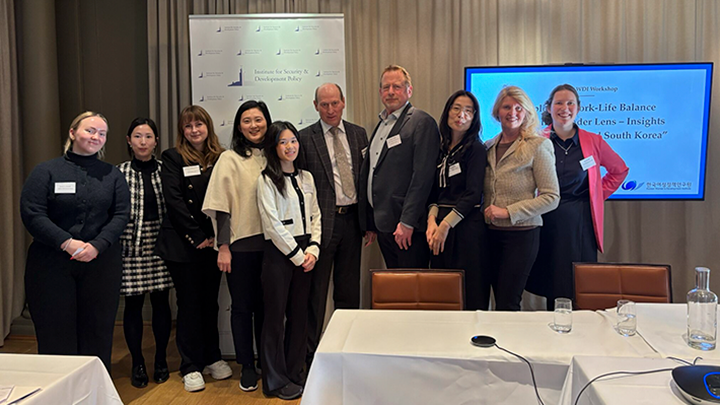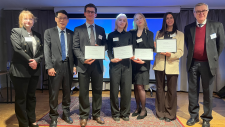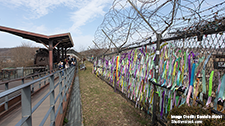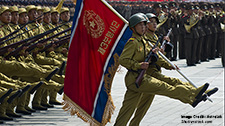Exploring Work-Life Balance Through a Gender Lens – Insights from the Nordics and South Korea

Josephine Ørgaard Rasmussen, Synne Norseth and Mats Engman
On February 19, ISDP’s Korea Centre co-hosted a workshop on work-life balance in the Nordics and South Korea through a gender lens with the Korea Women’s Development Institute (KWDI). The one-day event comprised three panels exploring the evolution of work-life balance in the Nordics and South Korea, as well as the impact of gender norms, family duties, and societal expectations on the countries’ efforts to promote gender equality and
improve work-life balance.
With Dr. Jiso Yoon (KWDI) serving as moderator and Dr. Eunji Kim (KWDI) and Dr. Caroline de la Porte (Copenhagen Business School) as presenters, the first session concentrated on the development of work-life balance in the Nordics and South Korea. In the second session, which was moderated by Dr. Livia Oláh of (Stockholm University), speakers Dr. Young Sook Kim (KWDI) and Mr. Niklas Löfgren (Swedish Social Insurance Agency) delved deeper into the subject by discussing how government funds are allocated to family-related policies in South Korea and Sweden as a means to improve work-life balance and gender equality. The last session, which was moderated by Maj Gen. (ret.) Mats Engman (ISDP), featured a broader debate on the similarities and differences between South Korea and the Nordic countries’ approach and drivers to achieve gender equality, as well as their success stories and ideas for new policy needed to improve work-life balance in these countries.
In order to find similarities and variations between the Nordic and South Korean perspectives on work-life balance as well as possible solutions to address issues brought on by gender stereotypes on work-life balance, this report compiles and contrasts the viewpoints made from the workshop speakers and participants.




